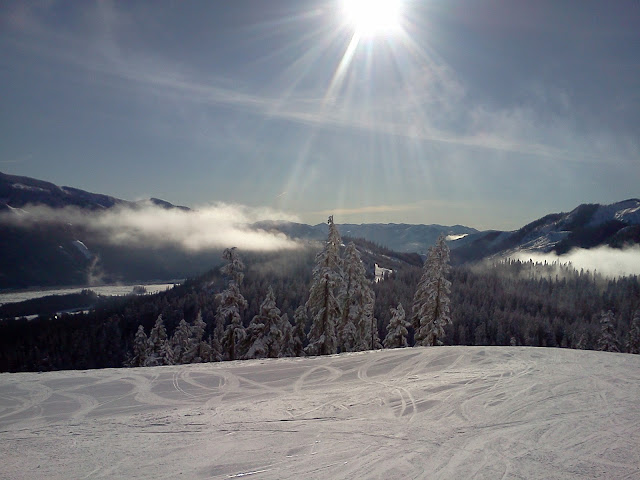HEART PARTY: Today at the community center in West Seattle where the kids attend classes on Fridays, there was a Valentine's party. We'd made superhero Tootsie Pops and "bee mine" Valentines (pictured in yesterday's blog) for the occasion.
Kids brought in decorated boxes and they were all placed on the floor of a classroom (CJ & Annabelle's are pictured above). Come 11:45, it was time to deliver the Valentines. I was instantly regretting our decision to put kids' names on them, as some of the boxes didn't have names, some were super hard to read, and there were 50 boxes in no particular order, and lots of people milling around. Just kind of a logistical nightmare/wild hunt. It took us 45 minutes to match our Valentines with the boxes in the room, and we still didn't manage to find them all, unfortunately.
However, the kids were very happy with their Valentines, and I was impressed by the creativity and individuality of so many of them.
BLUE SKIES: It was a gorgeous, sunny day and we enjoyed lots of outdoor time today. Annabelle and I hung out at the playground outside the West Seattle center for an hour while CJ took his Scratch programming class (Bee's Bollywood class was canceled).
And then this afternoon, we went for a walk up to Ella Bailey Park. It was a popular spot today, with dozens of people enjoying the sunshine.
On our way back down the hill, we noticed a tree with pussy willows on it. We stopped to 'pet' them for a bit.
The clear skies meant we had a nice look at the International Space Station as it flew over Seattle at 6:49 this evening. Sweet! We never get tired of spotting the station!
According to the Russian Academy of Sciences, the meteor was estimated to be about 10 tons and 49 feet wide. It entered Earth's atmosphere at a hypersonic speed of at least 33,000 mph and shattered into pieces about 18-32 miles above the ground.
Read more: http://www.foxnews.com/science/2013/02/15/injuries-reported-after-meteorite-falls-in-russia-ural-mountains/#ixzz2L1b6RRZ8
LECTURED: We're winding down our week 3 lectures in the astrobiology class. Today we watched short talks about Europa, one of Jupiter's moons, and Enceladus, a moon of Saturn. Both are intriguing to astrobiologists, as both of those moons are suspected of having liquid oceans beneath their icy crusts. Naturally, one can't help but wonder if those oceans are home to any life.


























